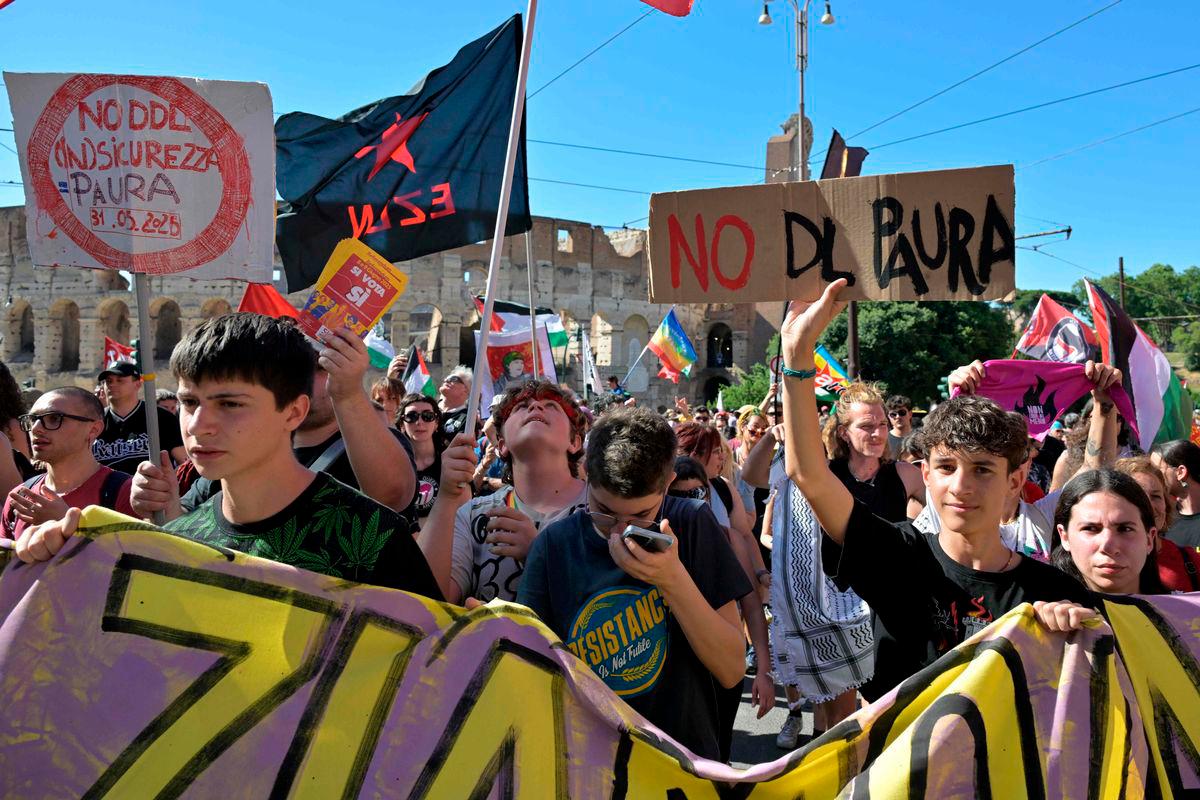ROME: Thousands of demonstrators marched through Rome on Saturday to protest a new security law passed by prime minister Giorgia Meloni's hard-right government, denouncing its criminal justice reforms as repressive.
Under tight police guard and sweltering heat, protesters marched through central Rome past landmarks including the Colosseum, waving trade union and Palestinian flags.
The law increases sentences for certain acts including protests and strengthens protections for police officers accused of violence.
“We consider this law the biggest attack on the freedom to dissent” against the government “in the history of the Italian republic,“ lawyer Cesare Antetomaso, a member of the National Association of Democratic Lawyers, told AFP.
The decree, passed by the lower house on Thursday after cabinet approval in April, is expected to clear the Senate -- where the ruling right has a firm majority -- within 10 days.
Police facing charges for violence while on duty will be eligible for 10,000 euros ($11,350) in legal aid under the new rules.
Offences such as taking part in “prison riots” will carry harsher sentences, including cases of passive resistance.
Illegal squatters face faster eviction procedures, and pregnant women or mothers of young children will no longer have the chance of avoiding jail when convicted, albeit in less severe detention centres.
Traditional union protests such as road blockades during protests -- formerly considered only an administrative offence -- could now carry jail terms of up to two years.
“There is a drastic increase in penalties for occupying buildings to live in,“ Antetomaso said.
“The housing crisis cannot be solved with seven-year prison sentences for those without shelter, but with various social policies.”
The government insists it has a mandate to pass the law.
“Order, security and legality are at the heart of the Meloni government’s actions,“ Carolina Varchi, a deputy in Meloni’s far-right Brothers of Italy party, said Friday.
“Challenging this decree means, in effect, turning one’s back on the demand for security that comes from citizens.”









